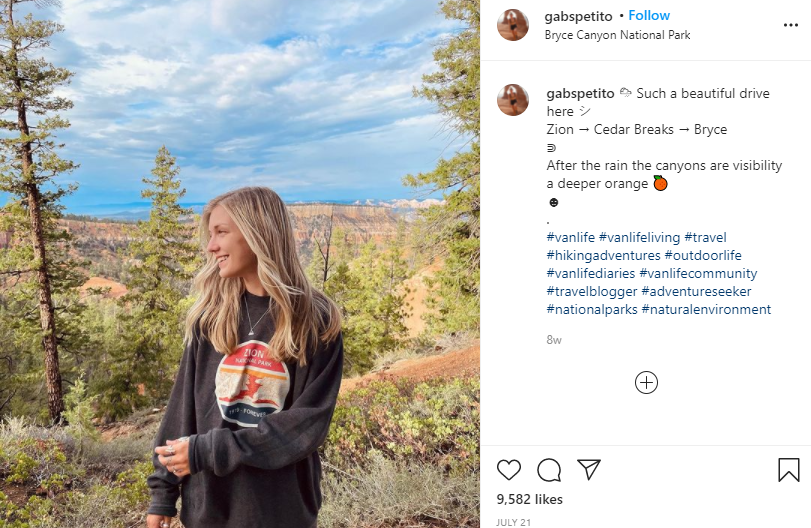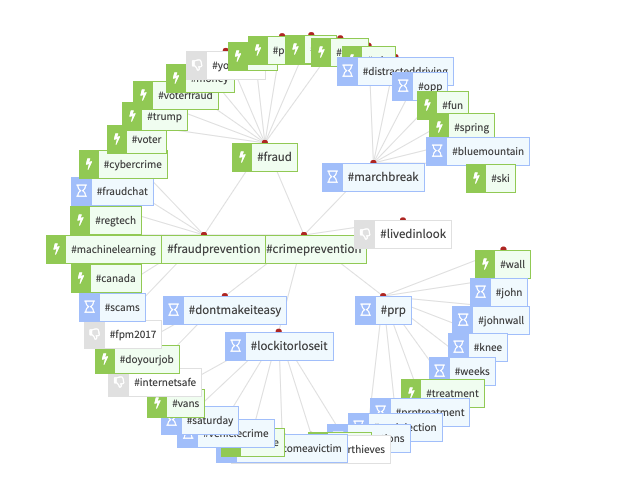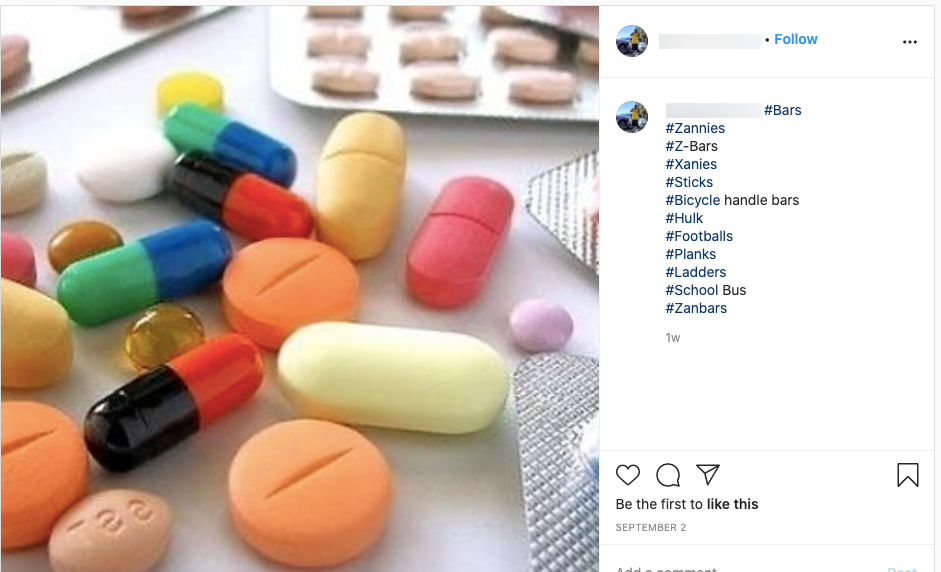Gabby Petito, a young and beautiful Social Media Influencer, went on one travel adventure after another with fiancé Brian Laundrie. And thens suddenly, it all took a very dark turn. With Gabby Petito’s potential remains being recently identified in Wyoming, and fiancé Brian Laundrie still missing, this case has captivated the hearts of many across the country.
Questions as to why this happened to her and if it all could have been prevented are on the minds of many. If you search #gabbypetito through TikTok right now you will find more than 480 million people have viewed the videos associated with the hashtag. From TikTok influencers, to witnesses, real time video footage is being posted piecing together the evidence.
How TikTok Helped
Taking a closer look at the videos associated with #gabbypetito, I stumbled upon Miranda Baker’s TikTok channel, a key witness associated with the investigation. Miranda and her boyfriend picked up Brian Laundrie who was hitchhiking around the time of Gabby’s disappearance. She gave a statement to the FBI but afterwards documented her interactions with Brian through her TikTok account. Every video she posted goes into details about Brian, their location, and interaction. Every video has gone viral.
Another video created by Alyssa Rose, shows a YouTube video the couple had posted on one of their adventures. She pauses the YouTube video at marker 6:40, to focus in on a book that Brain Laundrie was reading in a hammock. As she zooms in, she discusses the book he was reading which is “The Annihilation”. This book is about groups of people exploring uncharted terrain that go missing. This particular book series follows four women.

A third video was from Riley Lively, a mom living in New Orleans. She took to her TikTok account and stated in the post, “Putting some of my investigation skills to good use!” In this video she discusses how through sleuthing through an app called “All Trails” she found Gabby Petito’s public account. This app allows you to search and follow other individuals and their hiking trails from around the world. Through this account Riley discovered all of the trails Gabby had saved. She begins to show the lists that Gabby had saved in her account. Many of these hiking trails saved could have been potential spots of where was had gone missing.
Critical Thinking
In OSINT we are taught about the techniques behind finding key pieces of data or evidence that is online. What isn’t always taught? How to apply critical thinking online. Growing your critical thinking skills is just as important in finding key information. Each one of these women took to TikTok and applied their critical thinking skills, piecing together social media content to an ongoing investigation.
The Takeaway
Each of the viral videos above teach us all something valuable! Culture, personality, details, and analysis. Miranda met with the FBI and provided a statement. She also was continuously working with the FBI while creating her video content. My mind immediately goes to the details she is discussing in each post, how she is processing what she witnessed in each video, and what are others saying about the content she is posting in the comments. Are there any additional witnesses there? Any other clues?
Alyssa Rose shared Gabby Petito’s Youtube video. Someone could have easily watched that video and not notice Brian in the hammock reading a book. She took the time to analyze a video that could have easily gone over the heads of many. The online personality of your subject matters. This is a great example of a small piece of information, showing us an insight to Brian Laundrie and his interest.
Riley Liley pieced together Gabby being an influencer, possibly having an account with the ever popular All Trails App and was right. She then was able to view Gabby’s public online account trail lists.
Leave no stone unturned. Think about their interests. If they have a large social media presence, there’s a chance they have apps they are tied to involving their interests.
When we think of social media research, or social media listening, culture is not something that immediately comes to mind. It is only when we begin to dig deeper and identify what our search parameters are, that we begin to understand the role culture plays. TikTok is a culture phenomenon that continues to evolve. It took on an entirely new form over the past two weeks with this case and will continue to do so.








